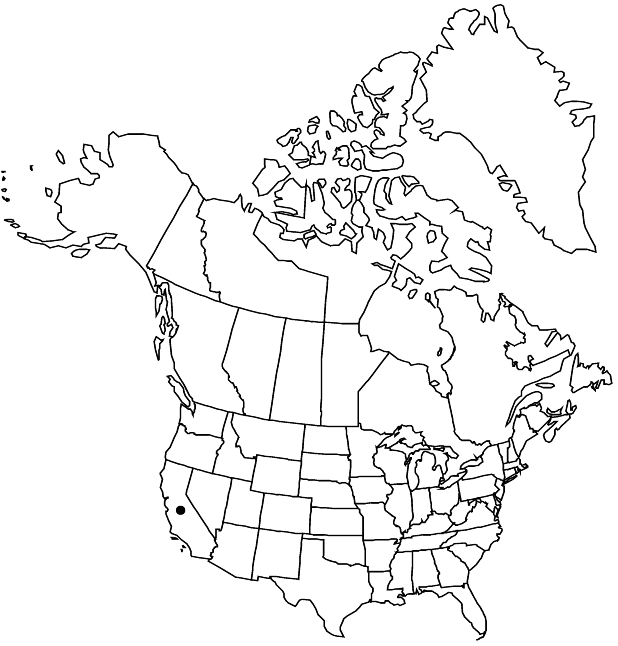Difference between revisions of "Arctostaphylos viridissima"
Man. Calif. Shrubs, 419. 1939 ,.
FNA>Volume Importer |
FNA>Volume Importer |
(No difference)
| |
Revision as of 23:04, 16 December 2019
Shrubs, erect, 1–4 m; burl absent; twigs short-hairy with longer, white hairs. Leaves: petiole 1–4 mm; blade dark green, shiny, narrowly ovate to oblong-ovate, 2–3.5 × 1.5–2.5 cm, base truncate to ± auriculate-clasping, margins entire, plane, surfaces smooth, puberulent, glabrescent. Inflorescences racemes, simple or 1-branched; immature inflorescence pendent, (branches ± concealed by bracts), axis 1–1.5 cm, 1+ mm diam., short-hairy with long, white hairs; bracts not appressed, (crowded), leaflike, lanceolate, 6–10 mm, apex acute, surfaces lightly hairy. Pedicels 2–3 mm, sparsely hairy. Flowers: corolla white, conic to urceolate; ovary densely white-hairy. Fruits subglobose, 10–15 mm diam., sparsely hairy or glabrous. Stones distinct. 2n = 26.
Phenology: Flowering winter–early spring.
Habitat: Island chaparral, open forests
Elevation: 100-600 m
Discussion
Of conservation concern.
Arctostaphylos viridissima is known from siliceous shale on the eastern part of Santa Cruz Island.
Selected References
None.
